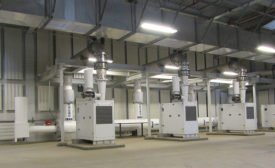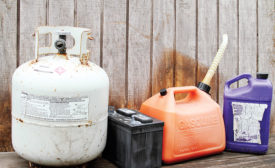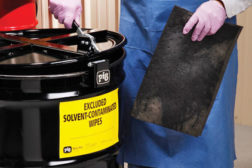Home » Keywords: » waste management
Items Tagged with 'waste management'
ARTICLES
Reducing environmental footprint is becoming a global priority
Read More
How Modesto wastewater treatment plant eliminated excessive noise
Taming the turbine
June 5, 2019
Noise Control
How managers at Ohio wastewater treatment plants reduced unhealthy noise levels
February 20, 2019
Survey your waste streams for correct disposal methods
Why can’t I just throw it away?
August 28, 2018
Become a Leader in Safety Culture
Build your knowledge with ISHN, covering key safety, health and industrial hygiene news, products, and trends.
JOIN TODAYCopyright ©2024. All Rights Reserved BNP Media.
Design, CMS, Hosting & Web Development :: ePublishing










